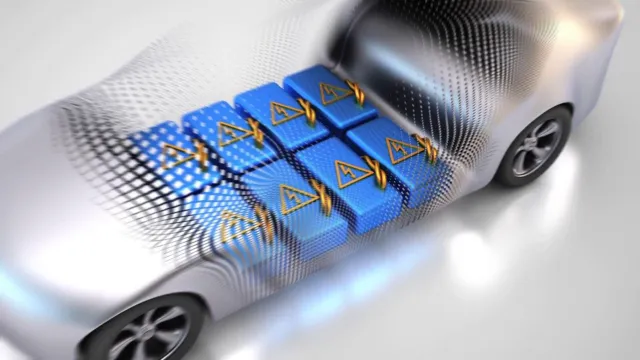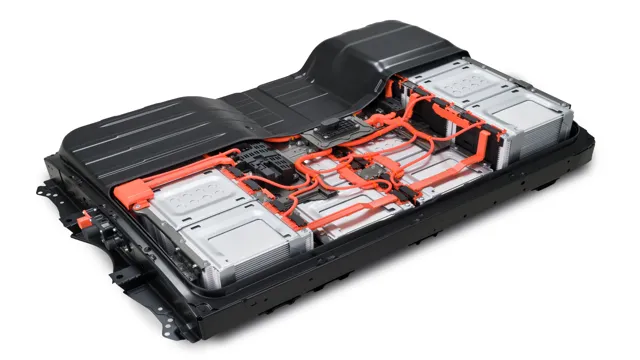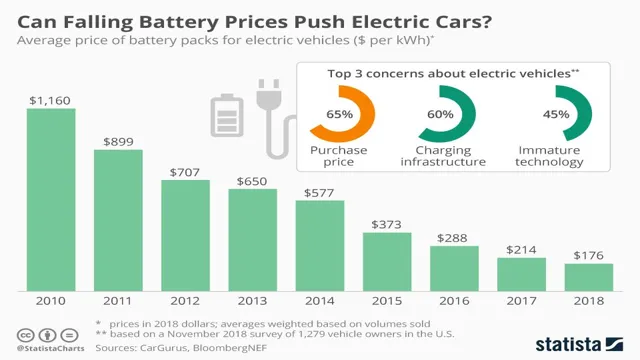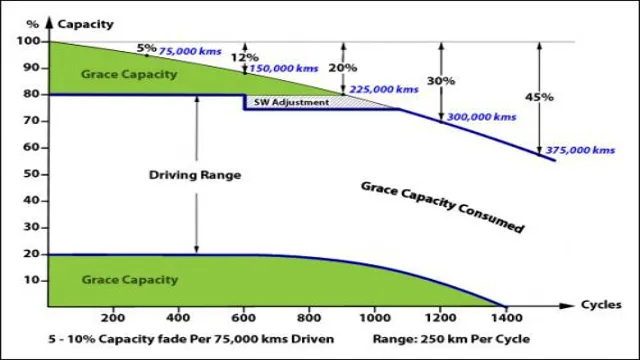Leasing Electric Car Batteries: Is it Worth the Investment?
Driving an electric car is becoming increasingly popular for many consumers, thanks to its environmental benefits and lower fuel costs. However, one aspect of electric cars that can cause concern is their battery life and the potential cost of replacing a worn-out battery. This is where leasing electric car batteries comes in – a solution that offers peace of mind to electric car owners while saving them money.
Leasing electric car batteries is an innovative option that has gained popularity in recent years. But what exactly is it, and how does it work? In this article, we’ll explore everything you need to know about leasing electric car batteries, from the benefits to the costs, and everything in between. So, if you’re thinking of buying an electric car or already own one, read on to discover how leasing a battery could be the answer to your worries.
Battery Ownership vs Leasing
Many people are unsure whether they have to lease electric car batteries or if they can own them outright. The answer is that it depends on the manufacturer and the model of the electric car. Some manufacturers offer battery leasing programs as an alternative to outright battery ownership.
This can be an attractive option for some drivers because it reduces the upfront cost of the car and can provide additional peace of mind in case of battery issues or any problems that arise. However, others prefer to own their batteries outright to avoid monthly leasing payments, and some models even allow for battery swapping to extend the car’s driving range. Ultimately, whether to lease or own your electric car battery is a personal choice that depends on your needs and preferences, and the best option may vary depending on your individual circumstances.
Pros and Cons of Battery Ownership
Battery ownership comes with its own set of pros and cons that one should consider before making a decision. On the one hand, owning a battery means having control over its usage and maintenance, ensuring that it is well-cared-for and lasts longer. Moreover, an owned battery may provide more flexibility in terms of its usage and allow for faster charging times if a homeowner invests in a DC fast-charging system.
On the other hand, battery ownership can be expensive, costing thousands of dollars upfront. Additionally, the responsibility for maintenance and repair falls on the owner, which can be stressful if something goes wrong. This is where leasing batteries become more favourable as leasing often involves minimal upfront costs and may include maintenance and replacement services.
Ultimately, the decision between battery ownership and leasing depends on personal preferences and budget constraints.
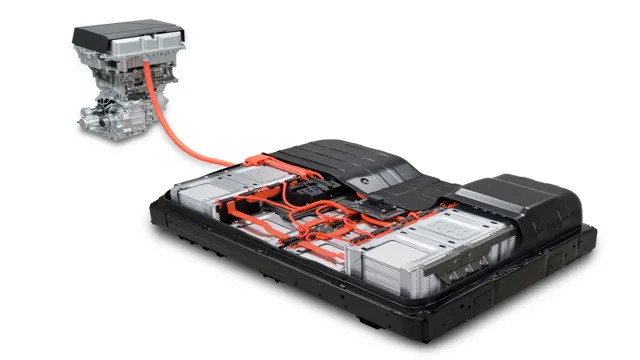
Pros and Cons of Battery Leasing
Battery leasing has become a popular alternative to traditional ownership in recent years. While there are benefits to both options, it’s important to consider the pros and cons of battery leasing before making a decision. One major advantage of leasing is that it can lower the upfront costs of purchasing an electric vehicle, making it more accessible to a larger number of consumers.
Additionally, leasing offers the benefit of having the battery replaced if it fails during the lease term, which can be costly with ownership. On the downside, leasing typically requires a monthly payment, which can add up over time. It’s also important to keep in mind that leased batteries may come with mileage restrictions or wear-and-tear fees, depending on the terms of the lease agreement.
Ultimately, the decision between battery ownership and leasing will depend on your personal financial situation and priorities.
Factors to Consider in Battery Leasing
If you’re considering switching to an electric car, you may be wondering if you have to lease the batteries or if there are other options available. While battery leasing can be a more affordable option upfront, it’s important to consider a few factors before making a decision. First, determine your driving habits and how much distance you typically cover.
If you have a long commute or often take road trips, you may want to consider purchasing the batteries instead of leasing them. Additionally, it’s important to factor in the cost of maintenance and potential replacement of the batteries over time. Ultimately, it depends on your individual needs and budget, so it’s important to weigh the pros and cons before making a decision.
Cost Comparison
When it comes to battery leasing, there are several factors to consider in terms of cost. One major factor is the length of the lease agreement. Generally, the longer the contract, the lower the monthly payment.
Additionally, the type of battery and its capacity will also affect the cost. High-capacity batteries will typically be more expensive to lease than those with lower capacities. It’s also important to consider any additional costs, such as installation fees, maintenance costs, and insurance.
However, it’s important to remember that while leasing may have lower upfront costs, over time, it could end up being more expensive than purchasing a battery outright. Ultimately, the decision to lease or purchase a battery should be based on individual circumstances and needs.
Lease Terms and Restrictions
Battery leasing is a great option for electric vehicle owners who don’t want the hassle of owning and maintaining their battery. When considering battery leasing, it’s important to consider the lease terms and restrictions that may come with it. Factors such as monthly payments, mileage restrictions, and early termination fees should be carefully evaluated before signing a lease.
One key advantage of battery leasing is the possibility of upgrading to a newer and more efficient battery at the end of the lease term. Additionally, some leasing contracts include maintenance and replacement services, relieving owners of the burden of battery upkeep. Overall, it’s important to do your research and fully understand the terms and restrictions before committing to a battery leasing contract.
Battery Performance and Maintenance
When considering battery leasing, there are several factors to keep in mind to ensure optimal performance and maintenance. The first consideration should be the type of battery technology used, as certain chemistries may perform better in certain applications. Next, it’s important to assess your energy needs and determine the size of the battery system required.
Additionally, monitoring and maintaining the battery’s charge levels is crucial in maintaining longevity and avoiding downtime. Properly ventilating the battery system and ensuring it’s installed in a suitable location can also positively impact its performance. Overall, leasing a battery with a reputable provider that offers regular maintenance and monitoring services can help keep your system running at peak efficiency, lowering costs and reducing your carbon footprint.
Battery Leasing Options Available
If you’re considering an electric vehicle (EV) but hesitant about battery ownership, you may be interested in the option of battery leasing. However, it’s worth noting that not all EV models offer battery leasing options, so be sure to research which models you’re interested in and their corresponding battery options. Leasing a battery for your EV can help lower the initial cost of the vehicle and provide peace of mind with regard to battery maintenance and replacement.
Some EV manufacturers offer battery leasing programs that provide a warranty and replacement service for the battery, while others partner with third-party leasing companies. It’s essential to do your research and compare the costs of battery ownership versus leasing to determine which option is best for you. That being said, to answer the main keyword, no, you don’t have to lease electric car batteries, but it is an available option for those who may prefer it.
Manufacturers Offering Battery Leasing
Battery leasing options are becoming more prevalent among manufacturers. Offering battery leasing instead of outright purchasing allows consumers to have access to high-quality batteries without breaking the bank. This is particularly beneficial for electric vehicle owners who often face steep battery replacement costs.
Battery leasing options also allow manufacturers to take responsibility for properly disposing of old batteries, which can be notoriously difficult to recycle. By leasing batteries, manufacturers can ensure that the batteries are returned and recycled responsibly instead of ending up in landfills. Ultimately, battery leasing is a win-win for consumers and manufacturers as it provides affordable access to high-quality batteries while promoting responsible disposal practices.
Third-Party Battery Leasing Providers
Battery leasing options for electric vehicles have become increasingly popular in recent years. Apart from first-party leasing options offered by car manufacturers, there are also third-party battery leasing providers available. These providers offer affordable financing options for vehicle batteries, making electric vehicles more accessible to a wider range of consumers.
Third-party leasing options also provide consumers with flexibility when it comes to the duration of the lease and the terms of the agreement. With the growing demand for electric vehicles, third-party leasing providers have become an important player in the market, offering consumers more choices than ever before. Leasing a vehicle battery can also provide peace of mind, knowing that the provider will take care of any maintenance or replacements needed over the course of the lease.
Overall, battery leasing offers a compelling alternative to purchasing a battery outright, and third-party providers offer a range of options to suit different needs and budget constraints.
Final Thoughts on Battery Leasing vs Ownership
If you’re in the market for an electric car, you may be wondering if you have to lease the battery that powers it. While leasing your battery may seem like a more affordable option, it also comes with some downsides. For one, you’ll be required to make monthly payments for the duration of the lease, which usually lasts for several years.
Additionally, you’ll typically have limits on how many miles you can drive on that battery. If you exceed those limits, you’ll be charged extra fees. Alternatively, if you own the battery, you’ll have more flexibility in terms of driving and maintaining your electric car.
You can replace the battery as needed and extend the life of your car in the long run. Ultimately, the decision to lease or own your electric car’s battery will depend on your financial situation and personal preferences. However, it’s essential to weigh the pros and cons of each option and decide which one is right for you.
Conclusion
In the end, the question of whether or not you have to lease electric car batteries really depends on your personal preferences and lifestyle. While leasing may provide some financial benefits and the assurance of regular maintenance, owning the batteries outright can offer greater independence and flexibility. Ultimately, it’s up to each individual driver to weigh the pros and cons and determine what works best for their needs.
As always, the key to a happy driving experience is to stay charged and keep an open mind – and maybe invest in a good pun or two along the way.”
FAQs
What are the advantages of leasing electric car batteries?
Leasing the battery of an electric car can help reduce the initial cost of purchasing the car. It also ensures that you have a newer and more efficient battery as manufacturers continue to improve their technology.
Is it more cost-effective to buy or lease electric car batteries?
The cost-effectiveness of leasing or buying depends on several factors like the depreciation rate, the cost of charging or electricity, and the resale value of the car. It is best to do your research and compare the costs of each option before deciding.
How long does an electric car battery last?
Generally, the lifespan of an electric car battery is between 8 to 10 years. It can vary depending on driving conditions, usage, and how well the battery is maintained.
What happens if the battery in my leased electric car needs replacing?
If the battery in your leased electric car needs replacing due to a fault during the lease period, the cost of repair or replacement is typically covered by the lease agreement. However, if the battery is damaged due to misuse or negligence, the cost of repair or replacement may be your responsibility.
